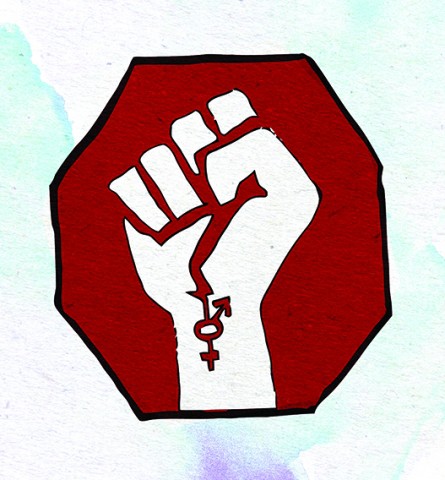Now that it is midterm season, more students are spending time on campus, which means having a safe environment for studying is critical — a right upheld by the University of Saskatchewan Sexual Assault Prevention policy.
The policy was approved in 2015, and since then, it has made the process of reporting incidents of sexual assault more accessible by providing more support and resources to students. According to Sexual Assault Services of Saskatchewan, only six out of 100 cases of sexual assault are reported to the police.
Vice-provost teaching and learning Patti McDougall has been very involved in writing the U of S policy and procedures on sexual assaults and encourages everyone to get involved with raising awareness on this topic.

“I always speak about it as our line in the sand. That policy document says we will not tolerate sexual violence on our campus and we will respond to people who perpetrate sexual violence,” McDougall said. “Being able to have Sexual Assault Awareness Week, and having it led by students, has been very important.”
McDougall believes that the policy has been successful since it was enacted two years ago, despite the increase of sexual assault reports filed. She explains that a greater number of reports does not necessarily mean that there has been an increase of incidents during these two years, but rather, that people are now more likely to report an incident and seek help.
“If we want to make a long-lasting change, it’s about shifting the norms and the culture that we have, and that takes everyone,” McDougall said.
Crystal Lau, vice-president student affairs of the U of S Students’ Union, works with this policy alongside the university, making sure students’ needs are met.
“All students, staff [and] faculty … should have a right to work, … live or study on campus in an environment that is free from any form of sexual assault or any other forms of sexual misconduct,” Lau said. “I know that this issue has affected both women, men and other minorities. It has affected people that I know, and myself included.”
Lau believes that the more people get involved, the more educated people on campus will be about preventing inappropriate behaviour. She strongly encourages people affected by sexual assault to reach out for counselling and peer support.
“There’s counselling services, [and] there’s peer support. If you ever need someone to talk to, we want to reach out. Know it’s not your fault,” Lau said.
McDougall explains that the U of S takes reports of sexual assault seriously and hopes that people will use the resources provided to everyone on campus.
“We will believe you. We will provide supports to you, whether that’s health, counselling [or] academic accommodations. We will not judge you. There will be no shame in coming forward,” McDougall said.
There are many resources offered by the university for victims and bystanders of sexual assault, such as Protective Services, the USafe app, Student Affairs Case Management and the centres run by the USSU. Apart from the policy and prevention framework, McDougall believes that students provide crucial support as volunteers at the Women’s, Pride and Help centres.
“The message that I hope people took from last week was [the] idea that we each carry a responsibility to stand up [and] to speak up,” McDougall said. “We can do a lot of positive work, when we build awareness [within] our university community.”
—
Sophia Lagimodiere
Graphic: Jeremy Britz / Web Editor
Leave a Reply